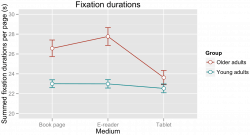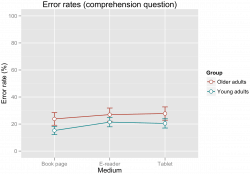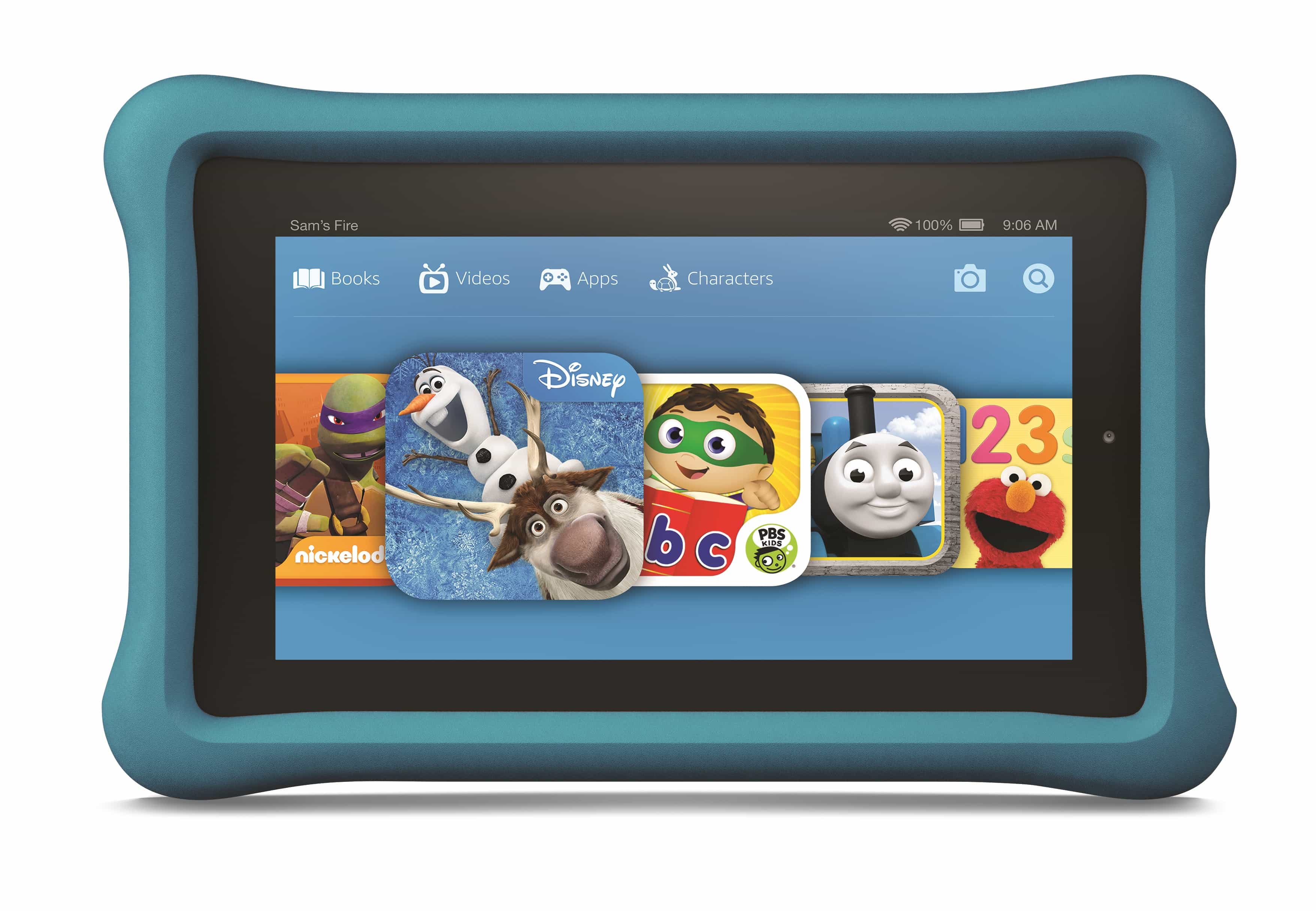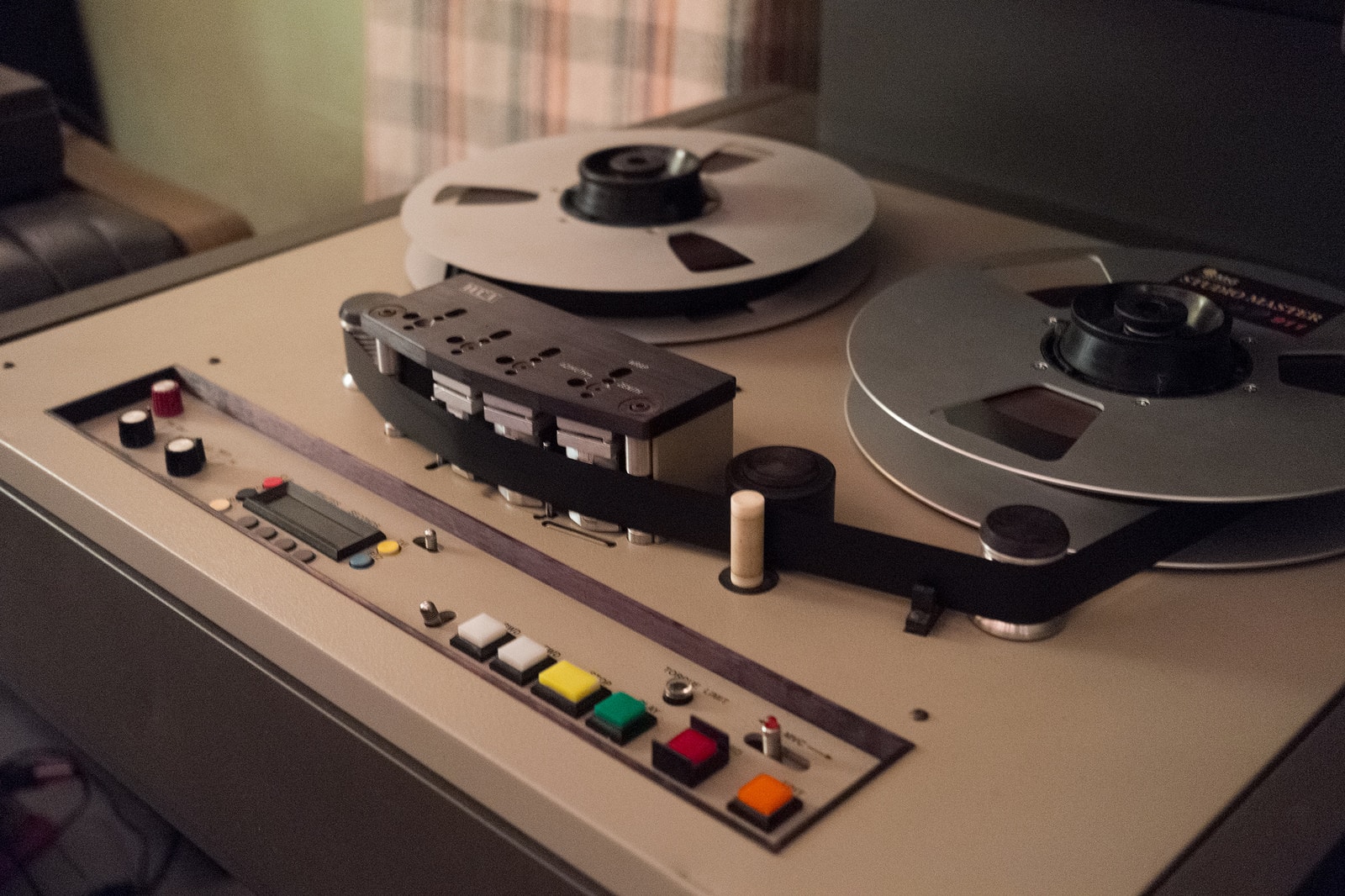Study: It’s Easier (For Some) to Read on LCD Screens Than in a Paper Book
I have long held the position that LCD screens aren’t as evil as everyone claims, and that the belief that E-ink is better for you eyes is a myth. Now there is new evidence that reading on an LCD screen device like the iPad or Kindle Fire might actually take less mental effort.
A team of researchers at Johannes Gutenberg University in Mainz, Germany, have recently published a paper which shows that in spite of claims to the contrary, it was easier for a test group to read on an LCD screen. What’s more, the test group also showed approximately the same retention of the reading material, no amter whether they read on LCD, an ereader, or on paper.
Dr. Matthias Schlesewsky and his colleagues tested a group of 57 Gen X and senior citizens for this study. The comprehension and retention of the reading material was judged by asking the test subjects questions, but in order to measure how much effort the test subjects put into their reading this study had to go high tech.
The test subjects were strapped into a rig that tracked their eye movements and measured their brain waves using an EEG (electroencephalogram) machine. Past research has indicated that reading can be associated with certain patterns of brain activity, and in this study the researchers noted when they occurred and at what intensity.

First, the EEG measurements showed that the Gen X test subjects used about the same amount of mental energy while reading on all 3 materials, with the tablet requiring slightly less energy than the ereader and paper book. The eye tracking figures showed the younger group also spent about the same amount of time reading on each type of material, with the tablet taking slightly less time.

Interesting, no? The researchers have posited that the backlight on the tablet might contribute to it being easier to read. I think it merits further study, myself; I’d like to see the study repeated with a slightly different set of conditions.

As you can see in the graph at right, going from paper to digital introduced a slightly higher error rate. Given the general hype surrounding digital textbooks at the moment, this bears further study.
Right now the textbook publishers and their pr flacks are talking about the many wonders of digital textbooks (I still see federal govt interest in digital textbooks as a disguised jobs program) but there’s never really been much substance to prove that digital textbooks were better.
Here we have a study that suggests digital textbooks are not better for students. It’s a pity that this probably won’t slow down the mad dash towards the next hot trend, but as we all know the US government rarely lets evidence get in the way of politics.


Comments
Thomas February 9, 2013 um 4:52 pm
Now that I’m getting older, I find that LCDs are a lot easier to read on than paper. To read a paper book, I need to have fairly bright light, which tends to hurt my eyes. I can read from my tablet in dim lighting with much less stress.
I haven’t tried E-ink, but since everyone claims it’s more like paper, I doubt I’d care for it.
Somebody February 10, 2013 um 10:26 am
You might even better like an eReader with active frontlight. Maybe you should take a look at one when in a store to see whether that beats the LCD.
Thomas February 10, 2013 um 4:00 pm
Bought my tablet last year, before the front lighted ereaders came out. I’m happy with my tablet. Besides, Best Buy refuses to turn off their store lights just so I can test one.
tracings February 9, 2013 um 5:06 pm
I’m curious about the "seniors" group (though not so much that I looked at the study!) Still, I wonder what, if any, age-related conditions the seniors might have had. As someone with the beginnings of macular degeneration, I find the glare of reflected light on tablets to be impossible to handle for more than 15 minutes or so. E-ink works extremely well for my particular condition. I wonder, did the study assess vision conditions of the participants?
ucfgrad93 February 9, 2013 um 6:21 pm
I really don’t have a problem with reading on either LCD or e-ink screen. For reading novels etc., I prefer my Kindle Keyboard.
Richard Adin February 10, 2013 um 7:16 am
I have used both eInk (Sony 505 and 950) and LCD (Nook Tablet) screens and found that I much prefer to read on my LCD screen. I’m one of the seniors and I do not have any age-related eye problems (yet). I still occasionally read on my Sony 950, but 99% of my reading these days is done on the Nook Tablet — and that is even after spending 8 to 10 hours working at my computer reading on my LCD monitors.
Sara C. February 10, 2013 um 2:19 pm
As a long-term substitute teacher, I was assigned an iPad. I found that I could read books on the iPad more easily than on paper (or eInk). Once they took back the iPad, I bought a Kindle Fire. The lit screen is much easier to read, and I don’t pick up a "real" book very often anymore. Oh, and I’m of the Gen-X population 🙂
DavidW February 11, 2013 um 7:34 am
I find eink much easier to read. My parents find tablets easier to read. They are less sensitive to light than I am. They put their tv backlight setting to one that causes me eye strain, but it makes it easier for them to see. I don’t think that these tests assess how comfortable it is to read though. I can read well on all three but will eventually get eye strain on the tablet. Associating the EEG results as measuring "mental energy" is vague and inaccurate.
Macmillan, DOJ: What Does It Mean for Everybody Else? | Digital Book World February 11, 2013 um 8:25 am
[…] the suit) is not the employer he had when he published the post; and third, do stones bleed now? Eye Strain Myth (The Digital Reader) Now that tablets are quickly overtaking e-readers as the dominant ebook reading device sold, is […]
kevin April 29, 2015 um 8:56 am
I have 2 monitors both the same.. one bugs my eyes out.. and the other doesnt..
anyone have any ideas ??
https://youtu.be/Jf6L0e_S-Gw
Copywriting–3 Things You Must Know About Content Writing | Linda Aksomitis January 22, 2016 um 3:55 pm
[…] See: https://the-digital-reader.com/2013/02/09/study-summary-its-easier-for-some-to-read-on-lcd-screens-th… […]